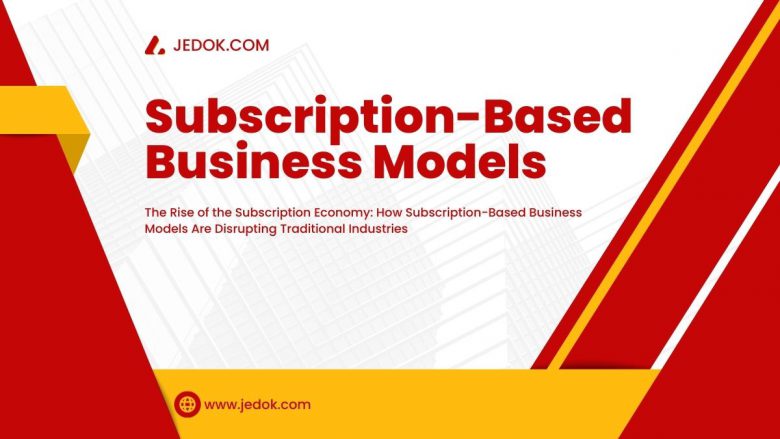
Subscription-based business models are on the rise, disrupting traditional industries and changing the way we consume goods and services. From software and media to fashion and home goods, companies across a wide range of industries are offering subscription services to consumers. In this blog post, we will explore the rise of the subscription economy and the impact it is having on businesses and consumers.
Understanding the Subscription Economy
In today’s digital age, the subscription-based business model has seen an increase in popularity as a way for companies to offer products and services to their customers. The subscription economy is based on a simple concept: customers pay a recurring fee for access to a product or service. This model provides companies with predictable revenue streams while providing their customers with convenience and value.
The subscription economy is driven by customer preferences, technology advancements, and competitive pricing strategies. Customers are increasingly seeking out products and services that provide them with convenience and value over time rather than up-front costs. Technology advancements have enabled companies to offer more sophisticated subscription models such as tiered pricing plans and personalized offerings. Competitive pricing strategies can also play an important role in driving the adoption of the subscription-based business model by providing incentives for a long-term commitment from customers.
The Impact on Traditional Industries
The subscription economy is disrupting traditional industries, such as retail and publishing. With the rise of this new business model, companies are forced to rethink their strategies to stay competitive in an ever-changing market. The subscription-based business model allows companies to offer more convenience, flexibility, and value for their customers than ever before.
This shift towards a better customer experience has had a significant impact on traditional industries. For instance, retailers have had to start offering subscription services that allow customers to purchase items online with recurring payments instead of paying upfront. This shift away from one-time purchases has allowed retailers to obtain a steady stream of revenue while also providing customers with more options and flexibility.
Similarly, publishers have begun offering subscriptions that provide readers access to digital content such as eBooks or magazines on a monthly or yearly basis instead of charging for each piece individually.
The Benefits and Drawbacks for Consumers
Subscription-based business models have become increasingly popular in recent years, as a way for consumers to access products and services with ease. Subscriptions allow customers to save time by having items delivered directly to their doorsteps, instead of needing to leave the house and shop at physical locations. Consumers also benefit from subscription services because they often provide access to exclusive deals and discounts not available through traditional retail stores.
However, there are some drawbacks that consumers should consider before signing up for a subscription service. Many subscription-based businesses lock customers into long-term contracts that can be costly if they decide to cancel or switch providers mid-term. Additionally, users may find themselves with more products than they need if they’re not closely tracking their orders and canceling unused subscriptions on time.
The Importance of Personalization
As consumers, it’s no surprise that we demand a personalized experience from the products and services we purchase. This is especially true in the subscription-based business model, where companies use customer data to tailor their offerings to individual needs. Personalizing a service or product is essential for businesses looking to succeed in this competitive economy.
Personalization helps build loyalty between customers and the businesses they frequent, as well as providing an incentive to keep coming back. With personalization, companies can establish trust with their customers by taking into account their preferences and tailoring services that meet those needs. In addition, personalized experiences help create a more meaningful connection between customers and brands since they feel like they are being taken care of on an individual level. Furthermore, it allows businesses to provide relevant content tailored specifically for each user which increases engagement and retention rates over time.
The Future of the Subscription Economy
As consumers, it’s no surprise that we demand a personalized experience from the products and services we purchase. This is especially true in the subscription-based business model, where companies use customer data to tailor their offerings to individual needs. Personalizing a service or product is essential for businesses looking to succeed in this competitive economy.
Personalization helps build loyalty between customers and the businesses they frequent, as well as providing an incentive to keep coming back. With personalization, companies can establish trust with their customers by taking into account their preferences and tailoring services that meet those needs. In addition, personalized experiences help create a more meaningful connection between customers and brands since they feel like they are being taken care of on an individual level. Furthermore, it allows businesses to provide relevant content tailored specifically for each user which increases engagement and retention rates over time.
Conclusion
The rise of the subscription economy is changing the way businesses and consumers interact, offering new opportunities and challenges. By understanding the benefits and drawbacks of the subscription model and staying abreast of emerging trends, businesses can position themselves for success in this rapidly evolving market.


